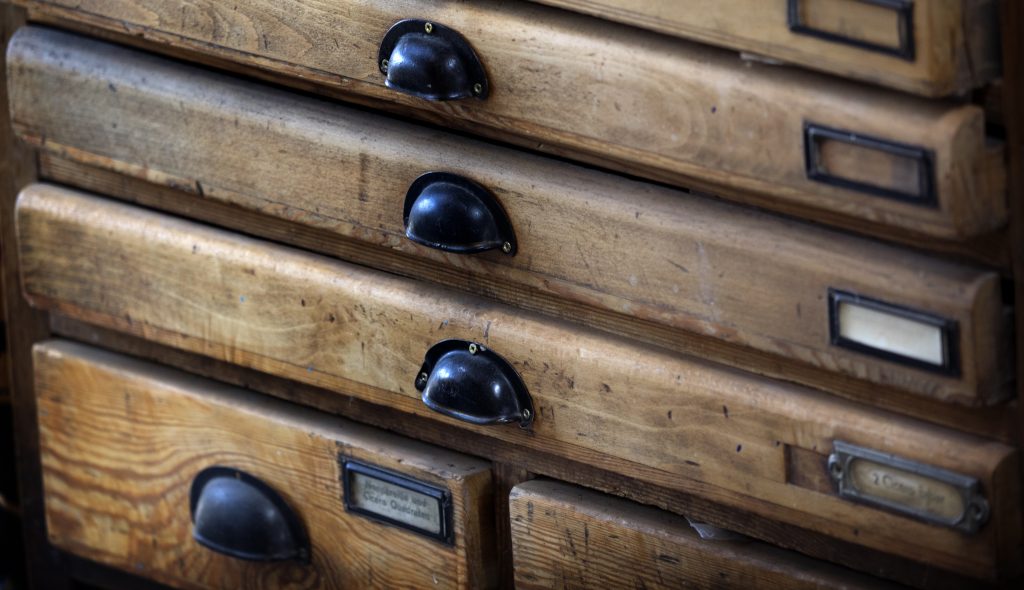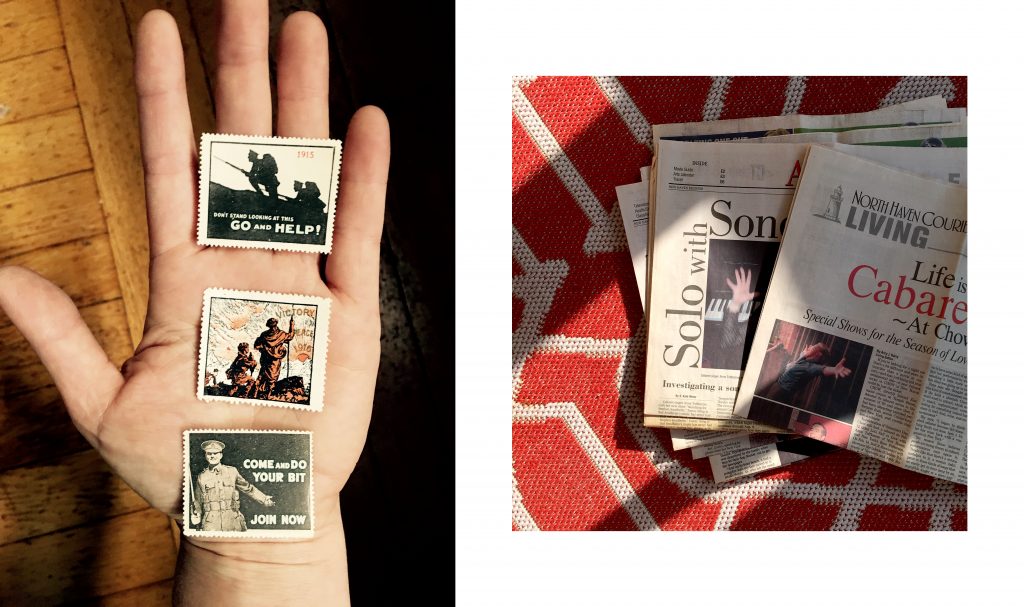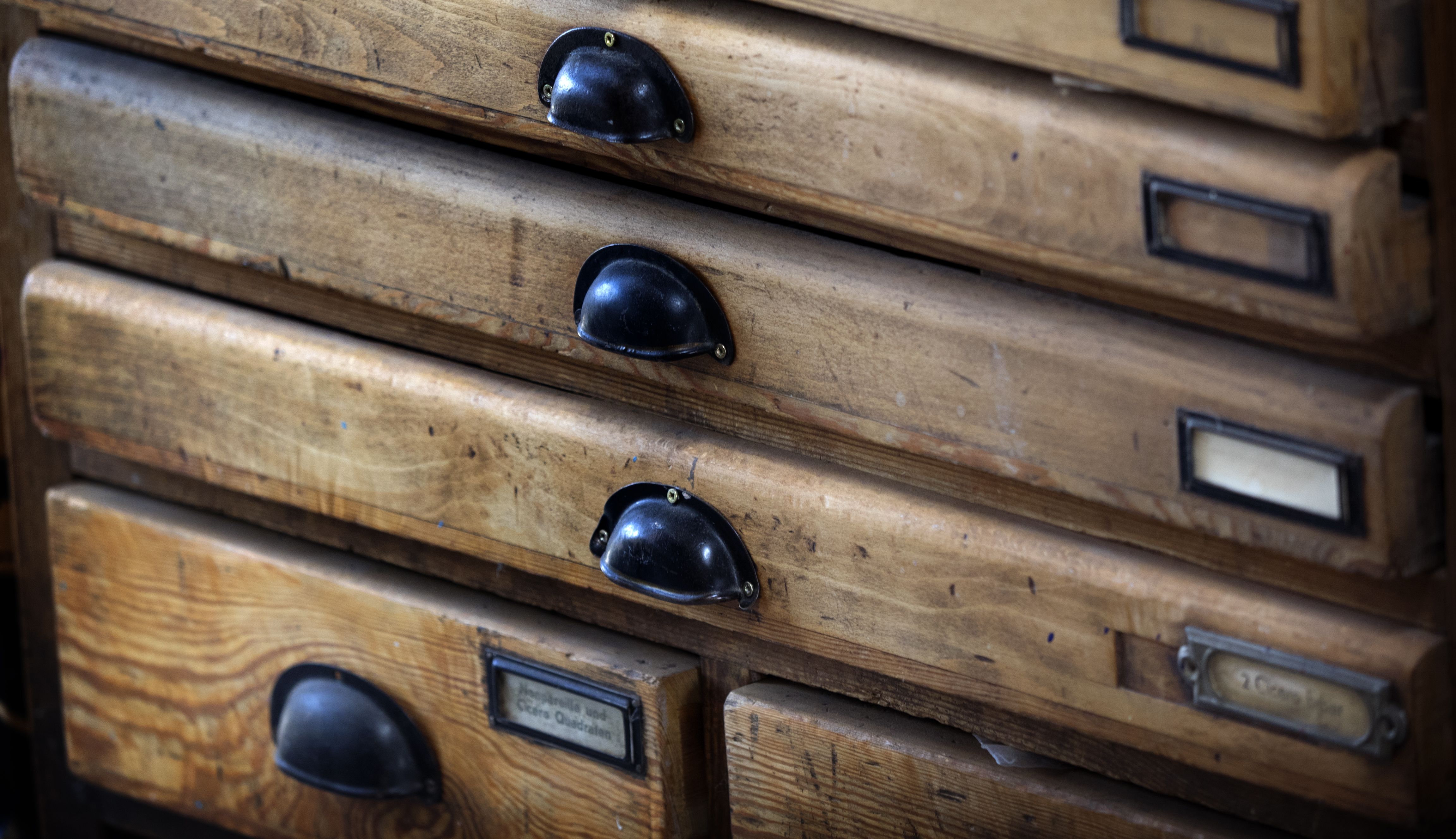How to Be a Good Steward of Family Stories: a Professional Archivist’s Perspective on Estate Planning

As the youngest of four children, with almost a decade between myself and the next oldest, I have always been fascinated with figuring out what went on in my family before my arrival. I vividly remember childhood afternoons spent poking through drawers, reading letters and poring over boxes and albums of photographs. As obsessed as I was, it wasn’t until my mother’s death that I realized the full meaning and importance of these historical items. With my mother no longer able to easily retrieve memories due to her illness, objects were suddenly left without stories and faces in photographs had no names to go with them. I worried I’d forget all the laughably long and unusual Southern names of my grandmother’s six siblings, or stare blankly at a teeny pair of overalls carefully tucked away, unsure which kid had worn out the knees. The fear of forgetting is what prompted me to consider how to be a good steward of family stories. Now, as a professional archivist, I have a uniquely personal perspective on estate planning.
After my mother died, every single post-it note with her handwriting on it seemed like something I should keep forever. My mother clearly had the same sensibility; the box she’d filled with my ballet slippers, ridiculous notes from middle school and my first pair of underpants (I called them “Cuties” and she had inscribed them with that name) seemed like something I could never unpack. Nevertheless, my childhood home now had to be emptied.
As I watched the process unfold and helped my father with everything from the redistribution of various items to members of our family to the estate sale that followed, I realized there was a need—and a market—for these services. I also realized that it would be of great value to have these services available prior to the death of a loved one. If you could organize an estate while family members were still alive, you could enjoy (and share) the memories stored in the multitude of objects found in a home. If you wait until liquidation, in the midst of stress and grief, it’s a whole different experience.
So I started my own consulting business, Larkin Archival, to bring the knowledge and sensibility of museums to individuals, so that they could learn to be good stewards of their own family or business histories. While I offer a myriad of services, I consider the most important to be providing historically-informed organizational intervention for people overwhelmed with the task of managing the artifacts of their past and their present. Sometimes this is following the death of a loved one, sometimes –preferably–it is before. Following are just a few examples of the discoveries I have made with my clients.
Recently a client and I unearthed three pristine World War I stamps from his grandfather’s belongings, which were hidden beneath layers of desk accumulation. Another client, who is a performer, sheepishly unveiled a pile of yellowing newspapers that held rave reviews but took up too much space and were badly degraded.

Both of these clients had no idea they still owned these items and were thrilled to rediscover and properly archive them to avoid further degradation (do not hold hundred-year-old stamps in your hand for longer than it takes to photograph for a blog post!). Quickly, the discomfort of the decluttering process became an exciting treasure hunt, full of bits of yesteryear.
I believe fervently in the adage “each one teach one.” And my consulting practice is equal parts service and instruction. I love the process of recording and cataloging memories; it’s been incredibly fun to teach others how to hold their past and present memories with reverence. Every one of us has the potential to actively make, tend and care for our own ongoing historical legacy. We just need to open our eyes to the stories hidden in attics and basements and drawers; to preserve the past while activating our present.
 About the author: Amy Larkin is a museum junkie, idea factory and utopic contrarian who loves to look. After falling in love with the click-whir of images flashed in dark lecture halls (RIP slide carousels) she graduated from Wesleyan with an Art History degree and went west. There, she attended San Francisco State University and earned a master’s degree in Museum Studies. She has worked at many cultural institutions including SFMOMA, The New-York Historical Society, the Yale Center for British Art, and the Wadsworth Atheneum. She also worked for three years as a high school history teacher. When she isn’t taking too many photographs of her dog and soulmate, Bug, Amy runs Larkin Archival, to help individuals and businesses preserve, protect and display their memories.
About the author: Amy Larkin is a museum junkie, idea factory and utopic contrarian who loves to look. After falling in love with the click-whir of images flashed in dark lecture halls (RIP slide carousels) she graduated from Wesleyan with an Art History degree and went west. There, she attended San Francisco State University and earned a master’s degree in Museum Studies. She has worked at many cultural institutions including SFMOMA, The New-York Historical Society, the Yale Center for British Art, and the Wadsworth Atheneum. She also worked for three years as a high school history teacher. When she isn’t taking too many photographs of her dog and soulmate, Bug, Amy runs Larkin Archival, to help individuals and businesses preserve, protect and display their memories.





One Comment
Save Family Photos Expert Tips for Restoring Old or Damaged Family Photographs - Save Family Photos says:
October 23, 2017 at 10:43 am
[…] art of preservation. Ultimately, it is not simply photos you’re pressuring. You’re also preserving priceless memories. That’s why it’s essential to find the right partner to help you shoulder the […]